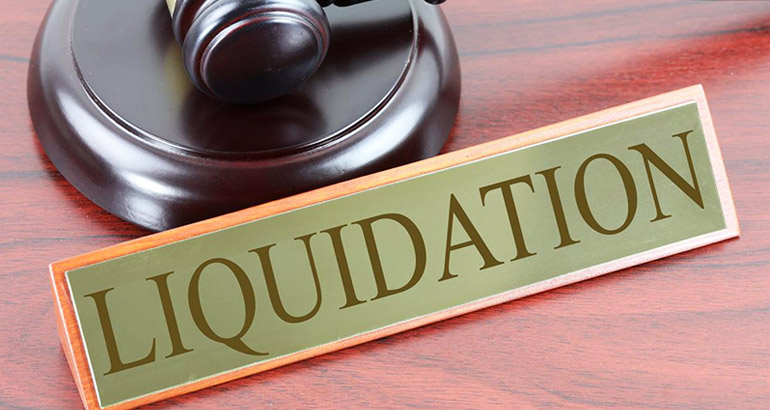The 3-Minute Rule for Company Liquidation
The 3-Minute Rule for Company Liquidation
Blog Article
Some Known Facts About Company Liquidation.
Table of ContentsAn Unbiased View of Company LiquidationCompany Liquidation Things To Know Before You Get ThisThe 25-Second Trick For Company LiquidationCompany Liquidation Things To Know Before You Get ThisRumored Buzz on Company Liquidation
A liquidator is specifically appointed to supervise the ending up of a company's affairs in order for it to be shut down normally when the business is going insolvent. The liquidator is an objective 3rd party who supervises the sale of company assets in order to pay off any type of arrearages.Their function consists of, however is not restricted to: Neutral Movie director: A liquidator is charged with acting as an objective third celebration to look after the whole company liquidation procedure. Develop Statement of Matters: Liquidators should produce a thorough declaration of events document. This document is dispersed to financial institutions, outlining the present financial standing of the service at the time of its liquidation.
After the liquidation of a firm, its presence is eliminated from Business House and it stops to be a lawful entity. If directors browsed the process without concern, there would certainly be no penalties or individual liability for firm debts anticipated. Currently, with a clean slate, directors can explore brand-new organization opportunities, though specialist consultation is recommended.
Some Of Company Liquidation
If more than 90% of all firm investors agree, liquidation can take location on brief notification within seven days, the minimal statutory notification for lenders. Typically, the larger the liquidation and the more properties and funding the business has, the longer the procedure will certainly take.

We understand that no two companies are the exact same, which is why we will make the effort to be familiar with your organization so we can recommend the very best training course of activity for you. We only operate in your best interests, so you can be absolutely certain in the solution we give.
A Biased View of Company Liquidation
In the UK, there is an established process to shutting see this here down or reorganizing a minimal company, whether it is solvent or bankrupt. This process is called liquidation and can only be managed by an accredited insolvency professional (IP) in conformity with the Insolvency Act 1986. There are 4 major kinds of firm liquidation procedure: Financial institutions' Voluntary Liquidation (CVL); Compulsory liquidation; Administration; and Members' Voluntary Liquidation (MVL).

In these situations, it is necessary that the business discontinues trading; if business remains to trade, the supervisors can be held directly accountable and it can result in the bankruptcy professional reporting wrongful trading, referred to as misfeasance, which may cause lawsuit. The supervisors assign a bankruptcy expert and as soon as this has been agreed and verified, there is a conference with the investors.
Obviously, if there are no investors, this step of the process is not needed (Company Liquidation). The IP takes control of the firm and starts the company liquidation process. The supervisors are no more entailed in what takes place, consisting of the sale of the business's properties. Nevertheless, if the directors desire any of the assets, they can notify the IP.
Company Liquidation for Beginners
The major difference is that the business's financial institutions put on the court for an ending up order which compels the financially troubled company into a liquidation procedure. Lenders take this action as a last resort since they have not obtained repayment through various other types of settlement. The court appoints a bankruptcy expert, likewise called a main receiver, to perform the required business liquidation process.
This sort of business liquidation is Go Here not voluntary and directors' conduct is reported to the UK's Secretary of State once the liquidation procedure has been completed. Any type of supervisor that falls short to coordinate with the IP or has actually been included in director misbehavior, or a deceptive act, may result in serious consequences.
It is made use of as a way to safeguard the firm from any kind of lawful activity by its lenders. The directors of the business agree to make routine settlements to settle their debts over a period of time.
Some Known Questions About Company Liquidation.
This gives the business with time to create a strategy going ahead to save the firm and stay clear of liquidation. However, now, directors hand control of the company over to the designated administrator. If a business is solvent but the supervisors and investors wish to close the company, a Members Voluntary Liquidation is the right choice.
The business liquidation procedure is handled by a liquidator assigned by the supervisors and investors of the business and they need to authorize a declaration that there are no lenders continuing to be. The liquidation process for an MVL resembles that of a CVL because properties are become aware yet the profits are distributed to the supervisors and the shareholders of the Go Here firm after the liquidator's costs have actually been paid.
Report this page